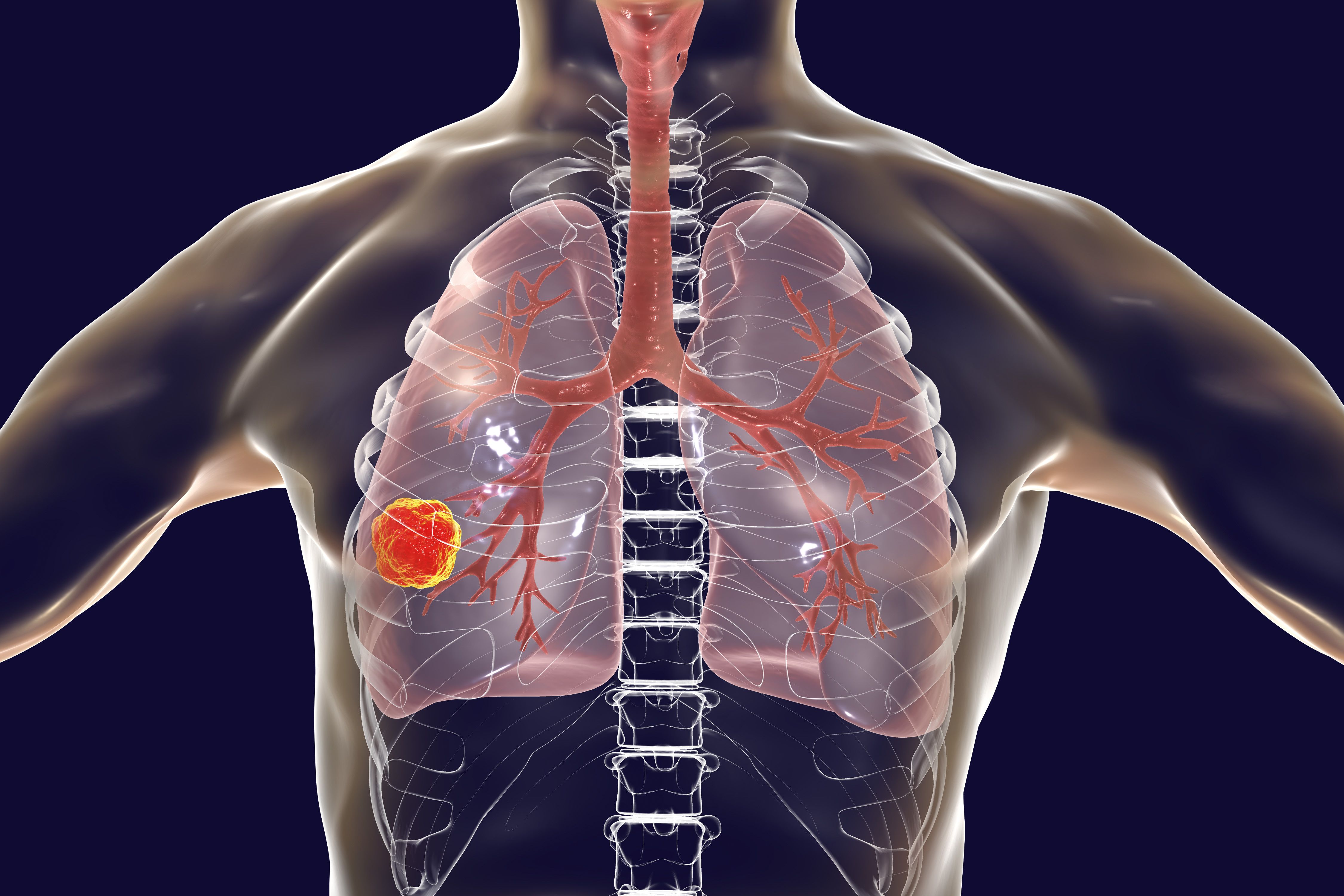Dostarlimab Plus Chemo Improves Responses in Patients With Advanced Non-Squamous NSCLC
Findings from the PERLA trial examining the combination of dostarlimab with pemetrexed followed by cisplatin or carboplatin will be presented at an upcoming medical conference. GSK hints that the combination improves objective response compared with pembrolizumab and chemotherapy.

Treatment with dostarlimab (Jemperli) plus chemotherapy in patients with first-line metastatic non-squamous non–small cell lung cancer (NSCLC) achieved a higher objective response rate (ORR) compared with pembrolizumab (Keytruda) and chemotherapy, meeting the primary end point of the phase 2 PERLA trial (NCT04581824).1
Headline results from PERLA also showed that the safety profile of dostarlimab was consistent with prior clinical trials. The most common treatment-emergent adverse events (TEAEs) observed during the study were anemia, asthenia, nausea, constipation, cough, dyspnea, vomiting, decreased appetite, and neutropenia.
According to an announcement by the GSK plc, developer of dostarlimab, full results from the study, including ORR by RECIST data assessed by the Independent Review Committee (IRC), will be presented at an upcoming scientific meeting. In addition, results from the secondary end point of progression-free survival will be presented.
PERLA trial is a randomized, double-blind trial which includes 243 patients. It is the largest global head-to-head trial of PD-1 inhibitors in patients with advanced NSCLC. Patients in the experimental arm of the study received dostarlimab 500 mg via intravenous (IV) infusion every 3 week (Q3W) for up to 35 cycles in combination with chemotherapy consisting of pemetrexed followed by cisplatin of carboplatin at 500 mg/m2 Q3W for up to 35 cycles. In the control arm, patients received pembrolizumab 200 mg Q3W for up 35 cycles with matching chemotherapy.2
Other secondary end points being explored as the study continues include overall survival, safety, and tolerability. Safety/tolerability will be determined by the number of patients with TEAEs, serious AEs, immune-related AEs, TEAEs leading to death or treatment discontinuation, and abnormal laboratory tests, vital signs, and physical examinations.
Those recruited for the study were 18 years of age or older with histologically- or cytologically-confirmed metastatic non-squamous NSCLC with no documented EGFR, ALK, ROS-1, or BRAF V600E mutations or other genomic aberrations. Patients were required to have measurable disease per RECIST v1.1, documented PD-L1 status, an ECOG performance status of 0 or 1, a life expectancy of at least 3 months, and adequate organ function.
Upon entering the study, patients were required to use contraception or remain abstinent during the study. Female patients are required to produce a negative pregnancy test. All patients were required to have all prior toxicities resolved to a grade 1 before receiving study treatment.
Dostalimab is also being investigated in the phase 3 COSTAR Lung trial in combination with cobolimab (GSK4069889) and docetaxel vs dostarlimab plus docetaxel and vs docetaxel alone (NCT04655976). Patients in the study have advanced non-squamous and squamous NSCLC whose disease had progressed on prior therapy with an anti-PD-L1 inhibitor, and a platinum doublet-based chemotherapy administered in combination or in sequence. GSK announced that both arms of the study are being advanced following a recommendation from the IRC.1
“These trials support the ambition for dostarlimab to become the backbone of our ongoing immuno-oncology-based research and development program when used alone and in combination with standard of care and future novel cancer therapies, particularly in patients with currently limited treatment options,” said Hesham Abdullah, senior vice president, global head of Oncology Development, GSK, in a press release.
REFERENCES:
1. GSK announces positive headline results from PERLA, the phase II trial of Jemperli (dostarlimab) plus chemotherapy in patients with metastatic non-squamous non-small cell lung cancer. News release. GSK. October 5, 2022. Accessed October 5, 2022. https://bit.ly/3ruQh82
2. Efficacy comparison of dostarlimab plus chemotherapy versus pembrolizumab plus chemotherapy in participants with metastatic non-squamous non-small cell lung cancer (NSCLC). ClinicalTrials.gov. Updated June 28, 2022. Accessed October 5, 2022. https://clinicaltrials.gov/ct2/show/NCT04581824
Brahmer Considers First-Line Immunotherapy Options in Metastatic NSCLC
February 17th 2025During a Case-Based Roundtable® event, Julie R. Brahmer, MD, MSC, reviewed the CheckMate 9LA, KEYNOTE-407, and POSEIDON trials of immunotherapy in patients with metastatic non–small cell lung cancer.
Read More